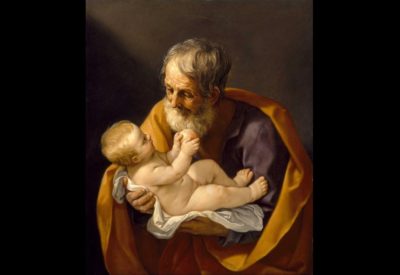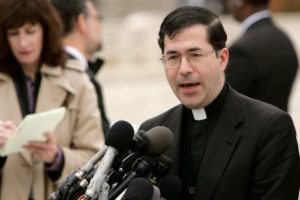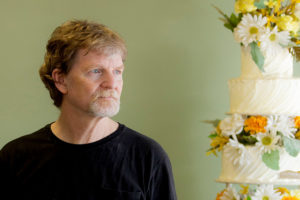Joseph of Nazareth, a Man’s Man

Published on THE STREAM
One of the Gospel passages I proclaim at the Liturgy during the last days of Advent contains the words of an angel to Joseph, the foster father of Jesus, and Joseph’s response. I suggest that it speaks in a unique way to Christian men:
Jacob was the father of Joseph, the husband of Mary; of whom Jesus was born, he who is called Christ. Now the birth of Jesus Christ took place in this way. When his mother Mary had been betrothed to Joseph, before they came together she was found to be with child of the Holy Spirit; and her husband Joseph, being a just man and unwilling to put her to shame, resolved to send her away quietly.
But as he considered this, behold, an angel of the Lord appeared to him in a dream, saying, “Joseph, son of David, do not fear to take Mary your wife, for that which is conceived in her is of the Holy Spirit; she will bear a son, and you shall call his name Jesus, for he will save his people from their sins.” When Joseph woke from sleep, he did as the angel of the Lord commanded him.” (Matthew 1:16-24)
Since the fourteenth century there has been a day set aside in my Christian tradition to honor Joseph by reflecting on his example. He is viewed as the Patron of the universal Church, of husbands and of all workers. He is called the model of “social justice” — the real deal, that is, not the leftist political counterfeit which has stolen the phrase as of late.
I suggest that this simple Carpenter who taught the Child Jesus how to work with wood, is a vital witness for this hour. This Jesus, who learned to work with wood from the hands of his foster father Joseph, saved the whole world by embracing the wood of the Cross at the age of 33.
A Man’s Man
We use an expression to refer to men who are comfortable “in their skin” and content with being men. We say such a man is a “man’s man.” Joseph is a man’s man. Let me explain.
Joseph was a man of few words, because he spoke through his actions — he did as the angel of the Lord had commanded.
Joseph was a man for others. Though the Scriptures say little about him, that absence speaks volumes. Why? Because Joseph knew he was not important, others were. He loved Mary above himself. His behavior was a just response in fidelity to the Jewish law and rooted in manly love.
He was prepared to do the right thing when she was found to be with child. He could have chosen otherwise. Like each one of us, he was given human freedom because he was created in the Image of God. He submitted that freedom to the Lord, its source and its fulfillment. How refreshing this kind of manly behavior is in an age when men often cower in the face of difficulty.
Faith and Courage
Joseph was a man of faith and courage. Along with loving his betrothed, Mary, he had a close, intimate personal relationship with the God of His Fathers. In a sense, he was the last Patriarch, completing the lineage and fulfilling the promise to all of the Patriarchs found in the Hebrew Scriptures.
Through his faith, Joseph received the great gift promised to all men and women. He held in his arms the One his fathers had only longed to see. God’s messenger, an angel, visited Joseph in a dream. His response to the invitation from the Lord was a non-verbal “Yes.” He did what the Lord commanded! How refreshing is such a response in an age like ours, so often characterized by cowardice and rebellion among men.
There was not an ounce of false bravado or false machismo in Joseph. Named after the Patriarch sold into slavery in Egypt (see Gen. 37-42), he bore the name with similar humility. The Old Testament Joseph embraced his lot, rejecting the temptation to bitterness or victimhood, and finally came to rule Egypt. He even forgave the brothers who sold him into slavery. Joseph of the New Covenant embraced his vocation as foster father of the Messiah, Jesus, the One who would establish the New Covenant on the altar of Calvary, shedding His blood out of love for the world.
Read the rest of this article on THE STREAM



